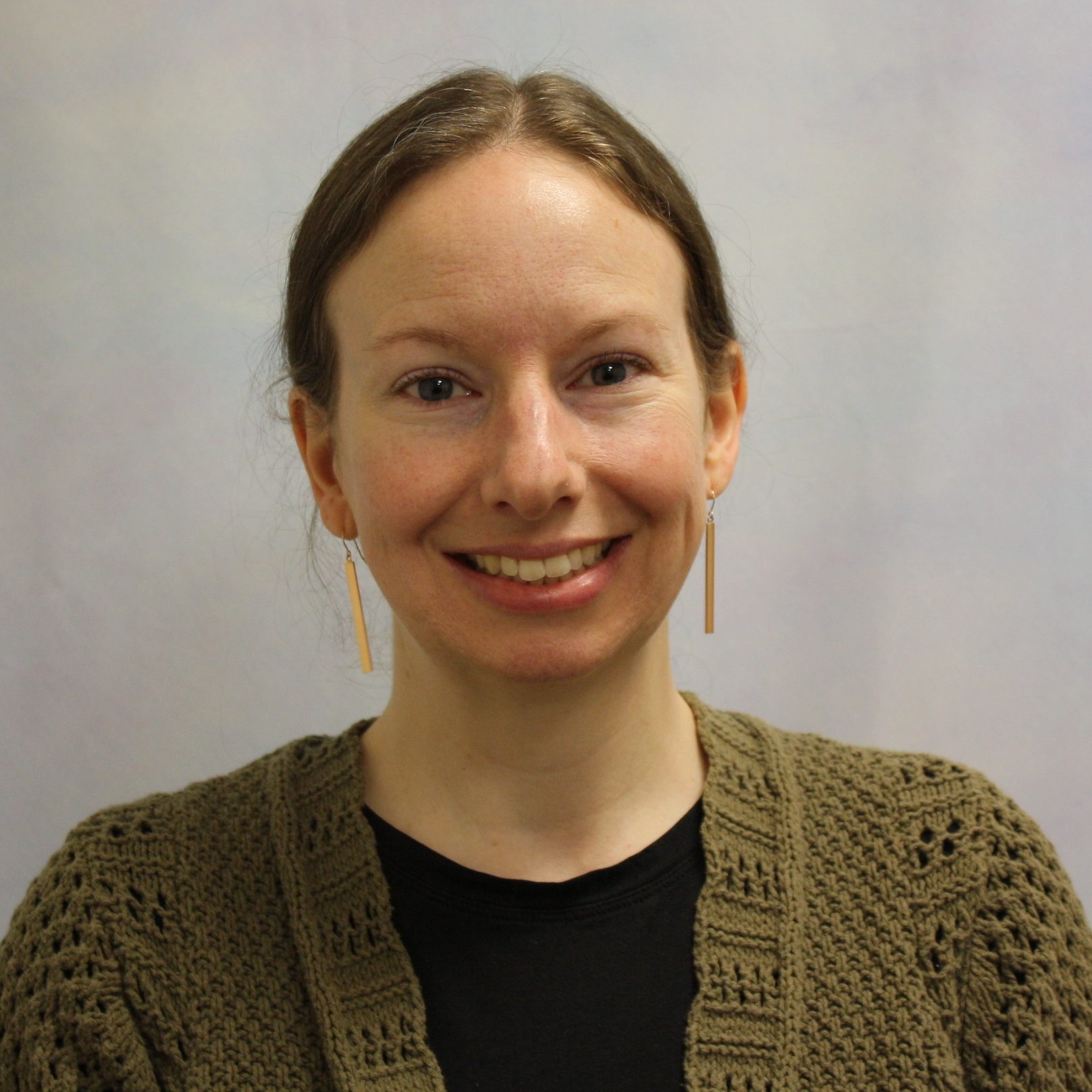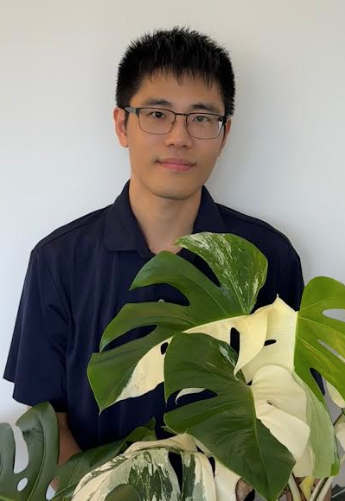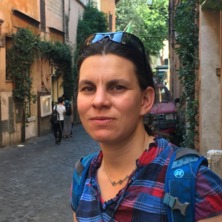
Career Perspectives from Dr. Kelly YanceyResearch Staff Member, Institute for Defense Analyses - Center for Computing Sciences
I'm so happy to be writing to you from the new Industry Insights section of The Calculated Career. I am a Research Staff Member at the Institute for Defense Analyses - Center for Computing Sciences (IDA/CCS) in Bowie, Maryland. I began working as a nonacademic research mathematician at IDA/CCS in August 2016 after a three-year postdoctoral position in the Mathematics Department at UMD, working with the dynamical systems group. Prior to my postdoc, I received my Ph.D. from the University of Illinois at Urbana-Champaign in 2013. IDA/CCS is part of a Federally Funded Research and Development Center (FFRDC) that performs fundamental research in support of the National Security Agency's mission. We have a very academic-style research environment where we work on hard, long-term mission problems. I collaborate often with my colleagues, and especially enjoy the summers at IDA/CCS when academics and researchers from other government organizations come to work with us on important problems in a program called SCAMP; I like to refer to SCAMP as an REU for grown-ups (Research Experience for Undergraduates). Having an open mind about what it means to be a research mathematician has been crucial to my success in finding a fulfilling career. There are many jobs where you can do research in mathematics and applied mathematics outside of the university setting, but it helps to be flexible. The chances of being hired by government and industry greatly increase if you prepare ahead of time by participating in summer internships in graduate school or during a postdoc, by taking a few courses in data science or machine learning or statistics, and by learning to program. These are experiences that I wish I had engaged in during graduate school, but it's never too late. After the second year of my postdoc, I participated in SCAMP at IDA/CCS. That summer internship was incredibly important to my career. Almost every week since working at IDA/CCS, I find myself thinking back and being grateful that things worked out the way they did. I love my job, and I still maintain my academic connections. If you have any questions about my career or would like to reach out, please feel free to email me at . |

A Conversation with Dr. Yun YangAssociate Professor, University of Maryland Department of Mathematics
I was drawn to academia because it gives me the freedom to explore the questions that truly interest me. I developed a love for math and physics early on, competing in national competitions in China. While I’m still drawn by physics, I found myself more into the rigor and logical depth of mathematics. What excites me most about applied math and statistics is how they bridge abstract theory with real-world problem-solving. Academia lets me dive deeply into these ideas, work on interesting challenges, and pursue independent research. Beyond that, I enjoy the constantly evolving environment—new problems to solve, opportunities to collaborate, and the chance to engage with students and colleagues who share the same curiosity for discovery. What specific steps did you take to prepare for and pursue a career in academia? To prepare for a career in academia, I built a strong foundation in both physics and mathematics. While preparing for the high school national physics competition, I self-learned college-level physics, which deepened my curiosity about fundamental principles. During my undergraduate years, I explored different aspects of both fields, taking courses in physics and mathematics to develop a broad perspective and better understand where my true interests lie. In graduate school, I focused on independent research, collaborating with mentors and peers to refine my problem-solving skills and tackle complex, open-ended questions. Each step reinforced my passion for discovery and critical thinking. Exploring new ideas, solving challenging problems, and contributing to meaningful research continue to inspire my academic journey. What are the most rewarding aspects of being a professor, and what are some of the challenges? One of the most fulfilling aspects of being a professor is the ability to explore deep, challenging problems to pursue my own research interests. I find it especially rewarding to see my students grow into independent researchers and successfully land academic positions, knowing that I played a role in their development. Collaborating with colleagues and contributing to meaningful advancements in However, academia comes with challenges, particularly balancing research with other responsibilities like service and securing funding. Navigating these demands requires persistence, but the opportunity to contribute to both knowledge and the next generation of researchers makes it incredibly worthwhile. Can you share any advice for students who aspire to become professors? My biggest advice is to be proactive and stay curious. Build a strong foundation in both theory and problem-solving, but also be open-minded—don’t limit yourself to a narrow research focus too early. Explore different areas, as interdisciplinary thinking often leads to the most impactful discoveries. Seek out research opportunities, collaborate with others, and build relationships with mentors who can provide valuable guidance. The journey is long and challenging, from publishing to securing academic positions, but staying motivated and embracing the intellectual of academia makes it incredibly rewarding. What are some important skills and qualities that aspiring professors should cultivate as they prepare for a career in academia? Aspiring professors should cultivate a combination of technical expertise, independent thinking, and adaptability. Strong problem-solving skills and a deep understanding of their field are essential, but so is the ability to think beyond a narrow research focus and explore interdisciplinary ideas. Being proactive in seeking research opportunities, collaborating with others, and effectively communicating ideas—both in writing and presentations—are also crucial. Resilience is important, as academia comes with challenges like publishing pressures and securing funding. Lastly, developing mentoring and leadership skills will help in guiding students and fostering a collaborative research environment. What is something Math Department students might not know about you? I enjoy growing plants and am a collector of rare variegated Monstera. Watching them develop unique patterns and thrive reminds me of the beauty of nature. I also like playing video games in my free time—it’s a fun way to relax and enjoy a different kind of challenge. Whether it’s caring for plants or exploring virtual worlds, I appreciate hobbies that bring balance to my academic work. |

Dr. Cecilia González Tokman, MATH ‘10Catch up with our accomplished MATH Department Alumni Could you briefly describe your current role and responsibilities? I am an Associate Professor in the School of Mathematics and Physics at the University of Queensland in Australia. This role involves a mix of research, teaching, supervision and service activities. I work on and think about ongoing and future projects, collaborate with colleagues and students both in person and remotely, and participate in academic meetings. I lecture at various levels, from first-year to graduate students, mentor and supervise early-career researchers, serve on scientific and professional society committees, organize events, referee papers and research proposals and participate in outreach activities. How have your career aspirations changed, or remained the same, since your time in the UMD Math Department? I would say they have simply evolved. Initially, I imagined an academic career, which I have pursued, but I was uncertain about the specific path or opportunities that would lead me there. What advice would you give to current students to find, secure, and thrive in an academic career? Like in other disciplines, I believe it is important to learn to read, write, speak, and listen in mathematics. Furthermore, I think that learning to work with computers is an essential skill in today’s world. Finally, I believe that engaging with topics that genuinely interest you is crucial for maintaining long-term motivation, as is surrounding yourself with a supportive and collaborative group of mentors and peers. If you could go back, what might you change about your time as a mathematics student and your career path? I haven’t thought about this too much. If I could go back, I might try to be less shy and speak with more people. How do you continue to develop professionally and stay competitive in your field? I actively participate in workshops and conferences to stay updated on developments in the field and to engage in discussions with colleagues. Additionally, I try to host and visit collaborators, allowing us to dedicate focused time to design and advance research projects. What do you enjoy most about your current job, and what are your future aspirations? I enjoy conducting research in the fields of dynamical systems and ergodic theory. Alongside my collaborators and students, I develop mathematical tools and algorithms aimed at enhancing our understanding of the long- and medium-term behavior of chaotic systems in changing environments. Additionally, we explore how different perturbations to these systems influence key model outcomes and forecasts. I believe that some of these concepts have potential for new applications, and I would be eager to contribute to their development across various fields. |

Key Materials for a Successful Academic Career
Preparing for a career in academia requires assembling key application materials that showcase your research, teaching, and professional experience. Whether you're applying for faculty positions, postdoctoral roles, or other academic opportunities, having well-crafted documents can make all the difference. This section highlights essential materials and provides resources to help you develop them for your academic career journey. Key Application Materials:
|


| Access the math jobs listings by clicking the link here. |

| Have questions or suggestions for our next newsletter? We’d love to hear from you! Feel free to reach out by emailing with your ideas or feedback. |





